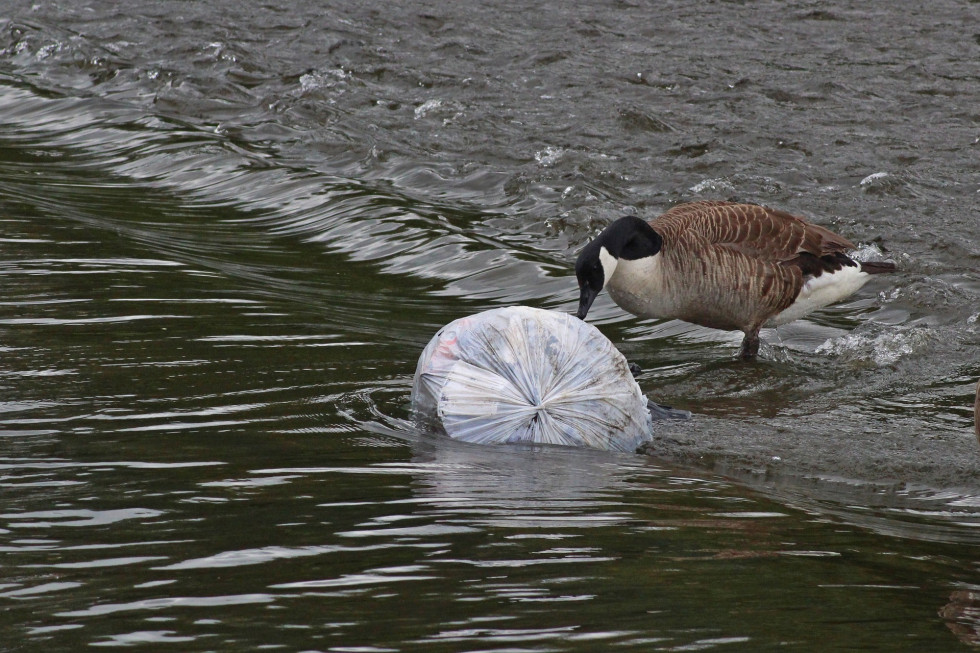Reducing plastic pollution
- Ministry of the Environment and Spatial Planning
The objective of all measures is to reduce pollution of the environment with waste made from these products and their rational design and use. The Decree thus determines the measures for the single-use plastic waste most commonly found on ocean shores in the EU and the fishing gear that contains plastic. By means of this Decree, Directive (EU) 2019/904 of the European Parliament and of the Council of 5 June 2019 on the reduction of the impact of certain plastic products on the environment is being fully transposed into the Slovenian legislation.
A system of extended producer responsibility (EPR system) is prescribed for single-use plastic products, which include beverage containers containing beverages up to three litres, lightweight plastic carrier bags, wraps and wrappers, cups for beverages, food containers, wipes, balloons, tobacco products with filters and filters marketed for use with tobacco products (tobacco products). The EPR system has recently also been prescribed for producers placing fishing gear containing plastic on the market. For all of these products, the EPR system with a collective fulfilment of extended producer responsibility obligations is being introduced.
Producers placing single-use plastic products on the Slovenian market will have to pay a proportionate share of the costs for cleaning the environment due to discarded waste resulting from such products and additional transport and processing of such waste within the EPR system to the public facilities for cleaning public areas. In the case of tobacco products, the producers may also cover the costs of establishing a special infrastructure for collecting waste from such products, i.e. suitable waste containers installed at the locations that are most burdened with waste. A methodology for calculating the clean-up costs is determined for a transparent and proportionate distribution of these costs, which is based on the proportion of single-use plastic products that end up in waste and the proportion of single-use plastic products placed on the Slovenian market.
The producers placing fishing gear containing plastic on the Slovenian market will have to pay the costs of separate collection of waste fishing gear containing plastic and further waste management within the EPR system. No suitable data on waste fishing gear exists in Slovenia, but its collection will start with the enforcement of the Decree. All producers of plastic products that are the subject of this Decree, with the exception of producers placing tobacco products on the market, will have to raise awareness regarding available alternative reusable products, reuse systems, waste management options for these plastic products and good practices in proper waste management. They will also have to raise awareness about the negative effect of littering and other inappropriate waste removal on the environment, particularly marine, and on human and animal health and the impact of inappropriate means of waste disposal on the sewage network.
The Decree stipulates the national objective for reducing the use of plastic cups for beverages and single-use plastic food containers and the measures for attaining this objective. The objective is to reduce the use of single-use plastic products by at least 20 per cent by 2026 as per 2022, measured in terms of the number of these products placed on the Slovenian market. To reduce the use, measures were adopted for event organisers, hot and cold beverage machine operators, food and drink operators and other entities that may contribute to the reduction in the use of these products by any means.
The Decree also determines the requirements when designing and composing containers for beverages up to three litres, such as plastic beverage bottles and composite beverage packaging, including their caps and lids, which must be attached to the beverage containers in compliance with the European standards. The target for recycled content in plastic bottles was prescribed: the recycled content for plastic bottles must be at least 25 per cent in PET (polyethylene terephthalate) bottles as of 1 January 2025 and at least 30 per cent in all plastic bottles for beverages up to three litres as of 1 January 2030.
A minimum objective for separate collection of waste bottles was set for recycling plastic bottles, i.e. at least 77 per cent as of 1 January 2025 and at least 90 per cent as of 1 January 2029.


